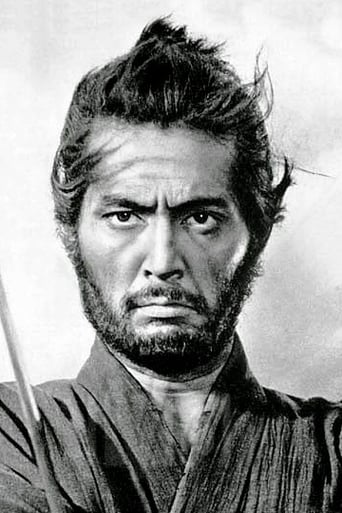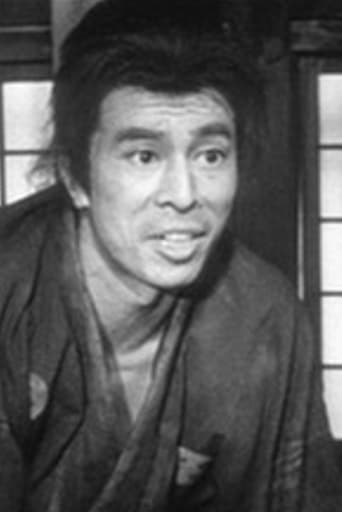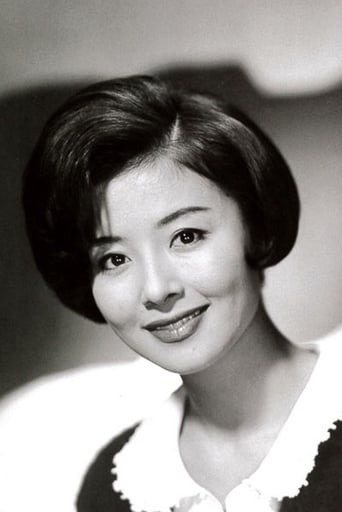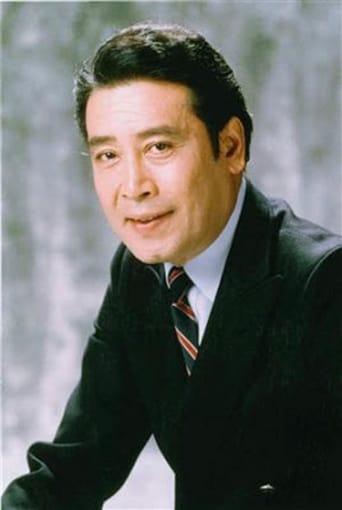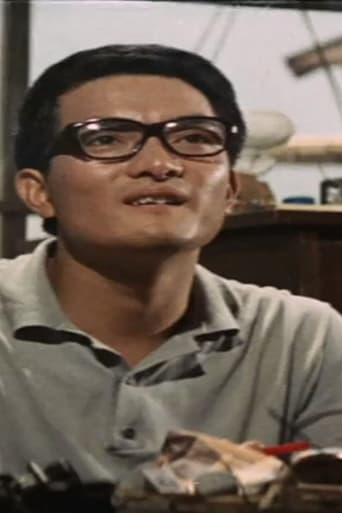Listonixio
Fresh and Exciting
AshUnow
This is a small, humorous movie in some ways, but it has a huge heart. What a nice experience.
Josephina
Great story, amazing characters, superb action, enthralling cinematography. Yes, this is something I am glad I spent money on.
popcorninhell
Kill! follows two ronin who are caught up in the confounding intrigue of a local clan. Genta (Nakadai) a former samurai and yakuza member looks on as a group of seven retainers kill their master under orders from Ayuzawa (Koyama) the clan's leader. They are subsequently betrayed and cornered in a mountainside hobble. On the other side is Hanji (Takahashi), a farmer and relative novice who hopes to get into the clan's good graces and is brought along to hunt down the seven assassins. While Genta and Hanji are on opposite sides of the clan's convoluted back-and-forth, they form a bond and find themselves playing one side against the other.Kill! is a sneaky, Manzai inspired kick in the pants to samurai adventure tales which has dominated the Western notion of Japanese cinema for half a century. Even if you're brand new to Chanbara, you're at least familiar with the popular titles of Seven Samurai (1954), Yojimbo (1961) and the Zatoichi series (1962-1989). Their pensive, wistful examinations of the Bushido Code are often punctuated by flairs of Western inspired violence that audiences all over the world ate up like gobs of rolled sushi. And just like in America, Italy, France, Mexico et al., Japan contended with a vibrant counterculture movement that rapturously embraced maverick artists and film directors. Kill!, while not as immediately known as Rashomon (1950), was for all intents and purposes, the counterculture's happy warrior.Throughout the film are a litter with characters, who on all sides vary from hypocritical to downright disgusting. Ironically, other than the principle rogues, the only other redeemable characters are Oikawa (Kubo) the leader of the encumbered seven and Jurota (Kishida) the lead guard; two characters duty bound to kill one another. Yet even though they are the only characters to hold to the Bushido Code while no one's looking, they are also just smart enough to realize they're trapped by the twisted machinations of Ayuzawa and their own stupid pride.Director Kihachi Okamoto along with Seijun Suzuki and Kon Ichikawa was among the nation's most radical insurgents and found hypocrisy in every system ancient and contemporary. Over a career that spanned six decades, the WWII veteran made over forty films many of which dealt with the absurdities of war. He intermingled high-action with low- brow comedy, employing a lyrical style that contemporaries likened to over-the-top musical only without the music. While previous works like Samurai Assassin (1965) and The Sword of Doom (1966) saw Okamoto on his best behavior, by 1968 the gloves came off. Kill! openly and repeatedly mocks the lithe practices of the samurai, at one point using a solstice celebration to humorously distract from an ambush. The conscience of his film (and audience POV) is esteemed Japanese legend Tatsuya Nakadai who is certainly no stranger to tearing down legends and picking at newly made scabs. While contemporary Toshiro Mifune made over thirty movies building up and championing the honorific exploits of the samurai, Nakadai's cool, collected work in Masaki Kobayashi's Harakiri (1962) single- handedly obliterated all the legends. While Kill! is comparatively light, employing a kick'em-while-they're-down mentality, its arguably much more fun to watch than Harakiri.Combining exciting swordplay, crackling dialogue, absurd humor and sly references and take-downs of other films (including as especially Kurosawa's Sanjuro (1962)), Kill! is a brilliant and fun little film. It offers interesting and complex characters and a story that confounds and confuses though in the same way 1968 confounded and confused the world. Before declaring 2001: A Space Odyssey (1968), If.... (1968) and/or Night of the Living Dead (1968) the most radical film/s of the sixties, check out Kill! and tell me you're not at least delighted.
chaos-rampant
Both the strength and the major weakness of Kiru! is that it refuses to take itself too serious. Although there are some notable moments where Okamoto goes for the dramatic angle (the squad leader whose wife works in the brothel facing off with Tatsuya Nakadai's character for one) and does it well, he keeps sabotaging his own movie. In that aspect, Kiru is definitely not a formal jidai-geki but more of a light-hearted samurai action film.Kihachi Okamoto might not be well known outside chambara circles, but he's one of the best in the genre and definitely at the top of his game directing action. Fresh from the devastating Sword of Doom (his magnum opus and one of Japanese cinema's finest moments), he brings a fresh, wild approach to his action. Less stylized and formal but more energetic. In terms of samurai cinema, the movie opens in a rundown little village and with the dust and winds blowing the whole setup is eerily reminiscent of Yojimbo setting. The plot is a crossover of sorts between Kurosawa's Sanjuro movies and the themes Eiichi Kudo explored in his Samurai Revolution trilogy (samurais ambushing and assassinating a daimyo for the honour of their clan etc). It may seem a bit convoluted and off-putting to the uninitiated, but that's typical in films of this kind.With regards to the comedy angle, while Kiru is a light-hearted fare, it's definitely not laugh-out-loud funny. A lot is lost in the translation I guess, but sometimes the comedic timing of Tatsuya Nakadai as the cunning, sly yakuza (a welcome change from the tortured soul characters he played in the 60's) and Etsushi Takahashi as the overzealous farmer with samurai ambitions shine through.
alice_frye
Nothing prepared me for the laughter and all-around entertainment offered by this film. The writer, director and actors manage to have fun with icons of Japanese society (e.g., a card shark priest, an honest bureaucrat who has never visited a brothel, a noble peasant, etc.,) while maintaining a good pace with the swordplay and forward movement of the story line. Nakadai is brilliant as the "been there, done that" samurai, who reveals much of the story's insanity to us through whispered comments and observations. Viewers might need a scorecard to keep track of all the double-crossing and back-firing that takes places, but Kiru is tremendous fun from beginning to end. And it's the only movie I've seen with the ugliest chicken in the world serving as a leitmotiv.
Charles Herold (cherold)
Well, I'm not sure what to think. While watching the movie I thought it just didn't make any sense, but the two reviews up here now say it's a comedy, so it's possible that it's just making fun of bad samurai pictures. But really, nothing is much more than mildly amusing in the movie. So if it's a Wet Hot American Summer-styled parody then I'll just say I didn't really get it. Because the story makes just as much sense as the purposely senseless story of that movie. But that still wouldn't make it all that funny, in my opinion. But I think the movie would be more fun if you go into it thinking of it as a parody.Still, I didn't really mind the senselessness that much, I just sort of went along with the flow, and Tatsuya Nakadai's performance alone is enough of a reason to see the movie.
